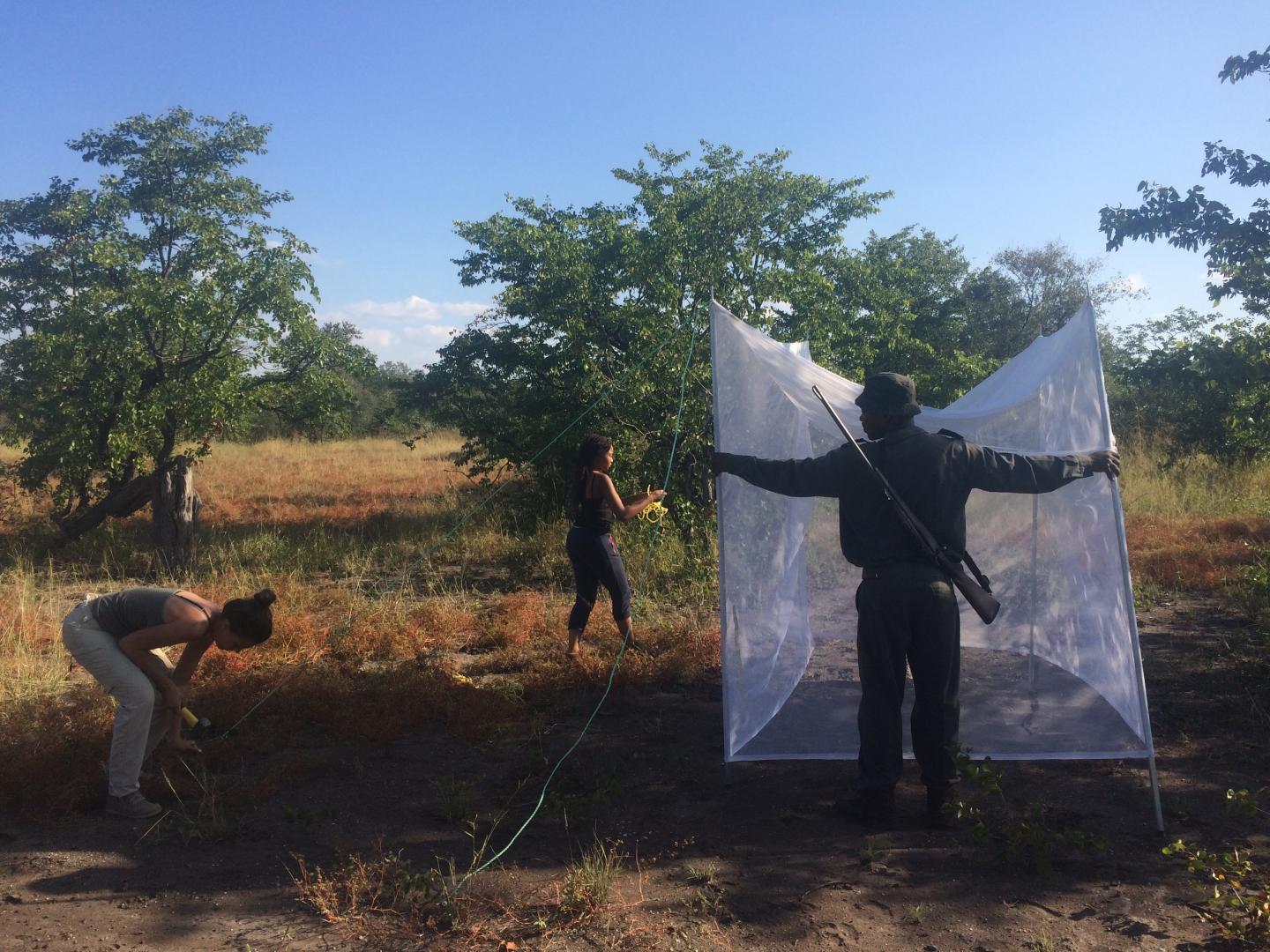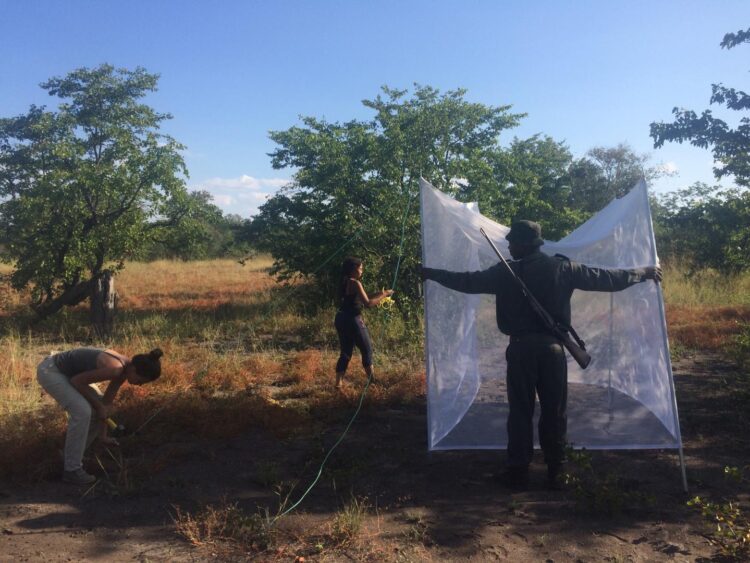
Credit: Courtesy Dr. Brianna Beechler, Oregon State University
CORVALLIS, Ore. — Disease-spreading mosquitoes may be more likely to occupy areas impacted by human activities like pesticide use and habitat destruction, than they are areas less disturbed by humans, a recent Oregon State University study found.
Working in a national park in South Africa, researchers found a significant difference in the abundance and species composition of mosquitoes inside the park versus densely populated areas outside the park, with the species known to spread diseases such as malaria and Zika virus more common in the human-impacted areas outside the park.
“People care a lot about what environment a lion needs to succeed in; we’ve researched that extensively. But people don’t do that with mosquitoes. We don’t understand them as a group of species and how their ecology differs between species,” said study co-author Dr. Brianna Beechler, a disease ecologist and assistant professor of research in Oregon State University’s Carlson College of Veterinary Medicine.
To find disease mitigation strategies for vector-borne diseases, which are diseases that spread via parasites like mosquitoes and ticks, mosquitoes are an obvious target, Beechler said. But scientists don’t yet understand mosquitoes well enough to specifically target the species that cause disease.
“All we can do is reduce mosquitoes overall, but what may be more effective is to reduce certain species by modifying their habitats,” she said.
To compare how mosquitoes fared inside Kruger National Park versus in densely populated areas, researchers looked at five “pressures” wrought by human presence: organophosphate pesticide abundance; eutrophication, which is the over-mineralization of water that leads to widespread algae growth; population density; ungulate biomass, which includes domestic animals like cattle and wild animals like impala and buffalo; and vegetation loss.
Human populations affect mosquito habitat and breeding patterns in a sort of domino effect. For example, pesticide use spreads into ponds and other small bodies of water, killing the fish and removing the natural predators that would otherwise eat mosquito larvae and keep the insect population low.
During South Africa’s wet season in 2016-17, researchers trapped 3,918 female mosquitoes from 39 different species both inside and outside the national park.
Mosquito abundance was nearly three times higher outside the park — in areas dominated by humans –than inside the park. And there was a significant difference in the species composition of mosquitoes, with the species known to spread diseases (like dengue, West Nile virus, chikungunya, yellow fever and Zika virus) more common outside the park than inside.
“It seems to suggest that disease-carrying mosquito species certainly did better in human-altered environments,” Beechler said, though she noted it’s hard to ascertain at this stage why that is. More study is needed to understand the ecological requirements of different mosquito species.
There are some success stories with current mosquito mitigation strategies. Beechler cited a technique in the Caribbean where residents are encouraged to introduce fish into any standing water in their vicinity, so the fish can eat mosquito larvae before they have time to hatch. And several countries have experimented with releasing clusters of sterile mosquitoes into the wild, so they will eat and take up resources but are not able to reproduce.
“But none of those are targeted at disease-transmitting mosquitoes versus non-disease-transmitting mosquitoes,” she said. “It’s just, ‘All mosquitoes are created equal.'”
Vector-borne disease is not currently a pressing issue in Oregon, though there are several different species of mosquito in the state and some have been known to spread West Nile virus. However, mosquitoes carrying malaria, Zika and chikungunya have all been pushing into new territory in recent years.
“With climate change, mosquito distributions are likely to change, and disease distributions are likely to change,” Beechler said. “So it’d be nice to know how to target those species before that happens.”
###
Media Contact
Molly Rosbach
[email protected]
Original Source
https:/
Related Journal Article
http://dx.





